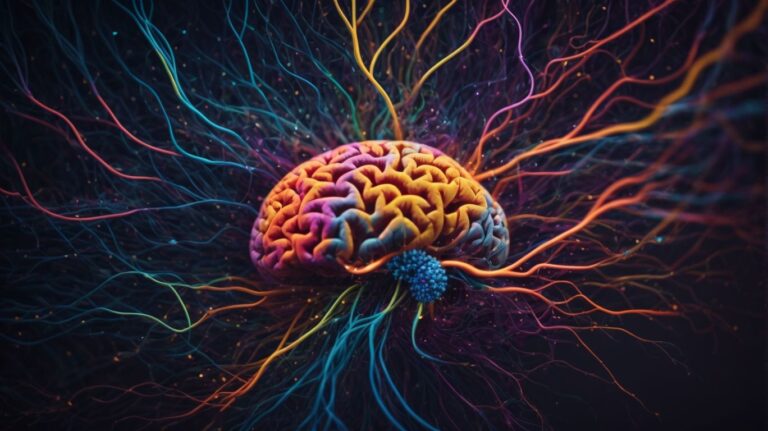Have you ever wondered why biology is so important in the field of psychology? The relationship between biology and psychology is crucial in understanding how biological factors influence behavior and mental processes. Genetics, neurochemistry, brain structure, and hormones all play a role in shaping our psychological experiences.
By studying biology, we can gain a better understanding of psychological disorders and develop more effective treatment approaches. Integrating biology and psychology offers a holistic view of human behavior, leading to advancements in research and technology.
Explore the career opportunities at the intersection of biology and psychology to see how this interdisciplinary approach can lead to exciting opportunities in the field.
Contents
- 1 Why is Biology Important in Psychology?
- 2 What is the Relationship Between Biology and Psychology?
- 3 What Are the Main Biological Concepts in Psychology?
- 4 How Does Studying Biology Help in Understanding Psychological Disorders?
- 5 What Are the Benefits of Integrating Biology and Psychology?
- 6 What are the Career Opportunities in the Intersection of Biology and Psychology?
- 7 Frequently Asked Questions
- 7.1 Why is it important to study biology in psychology?
- 7.2 What are the benefits of integrating biology into psychology?
- 7.3 How does studying biology in psychology contribute to our understanding of mental health?
- 7.4 Can studying biology in psychology help us understand evolutionary processes?
- 7.5 Is studying biology in psychology relevant for non-biologists?
- 7.6 How does studying biology in psychology impact our understanding of genetics?
Why is Biology Important in Psychology?
Understanding the significance of biology in psychology is crucial for unraveling the intricate interplay between biological processes and mental functions.
The field of biopsychology, often referred to as behavioral neuroscience, delves into how biology influences behavior and mental processes. Neurotransmitters, hormones, genetics, and brain structures are just some of the biological factors that impact our thoughts, emotions, and actions.
Research in biopsychology not only helps us comprehend the biological underpinnings of psychological disorders such as depression and schizophrenia but also informs therapeutic interventions and medication development. By combining insights from biology and psychology, scientists can gain a comprehensive understanding of human behavior and cognition, paving the way for innovative advancements in mental health treatment.
What is the Relationship Between Biology and Psychology?
The relationship between biology and psychology delves deep into the philosophical underpinnings of the biological perspective on human behavior and mental processes.
How Do Biological Factors Influence Behavior?
Biological factors play a pivotal role in shaping behavior, encompassing the intricate interplay between genetics, brain functions, and environmental influences.
Genetics provide the blueprint for our behavioral tendencies by passing down inherited traits that can predispose individuals to certain patterns of behavior. In parallel, the brain structure dictates how these genetic predispositions manifest in behavior, with different regions of the brain governing various aspects of cognition and emotion. External factors such as upbringing, social interactions, and societal norms contribute to the environmental influences that can either amplify or dampen genetic predispositions, shaping the ultimate behavioral outcomes.
How Do Biological Factors Influence Mental Processes?
Biological factors exert a profound influence on mental processes by modulating brain functions, neurotransmitter actions, and cognitive functions essential for information processing.
Neurotransmitters such as dopamine, serotonin, and acetylcholine play a crucial role in regulating mood, memory, and attention.
The intricate network of neural connections in the brain determines how information is processed, stored, and retrieved.
These cognitive processes are essential for decision-making, problem-solving, and learning, highlighting the significance of understanding the interplay between biological forces and cognitive functions.
What Are the Main Biological Concepts in Psychology?
Biopsychology encompasses key concepts such as structuralism, functionalism, and cognitive perspectives that elucidate the biological underpinnings of human behavior.
Genetics and Heredity
Genetics and heredity play a pivotal role in shaping an individual’s biological makeup, encompassing the transmission of biological factors and genetic influences across generations.
These genetic factors not only determine physical characteristics like eye color, hair texture, and height but also impact various aspects of an individual’s behavior and cognitive functions. Understanding how genes influence personality traits, intelligence, and susceptibility to certain diseases can provide valuable insights into personalized medicine and psychology.
Neurochemistry and Neurotransmitters
Neurochemistry and neurotransmitters serve as critical components in understanding brain chemistry, neural communication, and cognitive functions through advanced brain imaging techniques.
Neurotransmitters, such as dopamine, serotonin, and acetylcholine, play pivotal roles in influencing mood, memory, and overall brain function. These chemical messengers transmit signals across synapses, impacting various brain regions and neural pathways. Understanding their actions is crucial in unraveling mental health disorders, addiction, and neurodegenerative diseases.
Neuroimaging techniques like fMRI, PET scans, and EEG provide valuable insights into the dynamics of neurotransmitter activity within the brain. By visualizing blood flow, metabolic activity, and electrical patterns, researchers can correlate neurotransmitter release with specific cognitive tasks or emotional responses.
Brain Structure and Function
The intricate relationship between brain structure and function underlies cognitive processes, motor skills, and sensory information processing, with implications for neurodevelopmental disorders and cognitive functions.
Each part of the brain plays a critical role in orchestrating various functions. The frontal lobe manages executive functions like decision-making and social behavior, while the parietal lobe is essential for processing sensory information such as touch and spatial awareness.
Meanwhile, the occipital lobe primarily handles visual processing, and the temporal lobe contributes to memory and language comprehension. The interconnectedness of these lobes within the brain creates a complex network that enables humans to perceive and interact with the world.
Hormones and Endocrine System
Hormones and the endocrine system regulate various biological processes crucial for physiological psychology, modulating behaviors, emotions, and adaptation to environmental stimuli.
Key glands such as the pituitary, thyroid, and adrenal glands secrete these chemical messengers, with each hormone playing a specific role in maintaining homeostasis and influencing bodily functions.
For instance, cortisol, often referred to as the stress hormone, is released in response to stressful situations, triggering the ‘fight or flight’ response that prepares the body to deal with perceived threats.
This intricate network of hormones not only impacts physical health but also exerts a profound influence on mental well-being and cognitive processes.
How Does Studying Biology Help in Understanding Psychological Disorders?
Studying biology provides invaluable insights into the biological underpinnings of psychological disorders, ranging from brain injuries to mental health conditions, and informing evidence-based treatments.
Biological Basis of Mental Illnesses
The biological basis of mental illnesses is illuminated through cutting-edge brain imaging techniques, shedding light on neural correlates of conditions such as depression and anxiety.
Neuroimaging technologies play a pivotal role in unraveling the intricate workings of the brain, providing insights into the structural and functional changes that occur in individuals with mental health disorders. Magnetic Resonance Imaging (MRI) allows researchers to visualize brain structures with remarkable detail, while Positron Emission Tomography (PET) captures metabolic activity, offering clues about neurotransmitter functions associated with mood regulation. Functional Magnetic Resonance Imaging (fMRI) enables the observation of brain regions activated during specific tasks, highlighting altered neural circuitries in individuals experiencing depression, anxiety, or other mood disorders.
Biological Treatments for Mental Illnesses
Biological treatments for mental illnesses underscore the importance of integrating brain research and a biological viewpoint to develop targeted interventions for conditions like depression and schizophrenia.
By understanding the underlying biological mechanisms of these disorders, researchers can identify specific neural pathways and neurotransmitter imbalances that contribute to the symptoms experienced by individuals. This detailed knowledge allows for the development of medications that directly target these biological factors, offering more effective and tailored treatment options.
Advancements in brain imaging technologies, such as functional magnetic resonance imaging (fMRI) and positron emission tomography (PET), enable scientists to observe the brain’s activity and structure in real-time, providing valuable insights into how mental illnesses affect neural functioning. This information aids in refining treatment modalities and personalized interventions for patients based on their unique brain patterns.
Impact of Genetics on Mental Health
Genetic factors exert a profound impact on mental health outcomes, shaping individual differences in personality traits, cognitive functions, and susceptibility to mental health conditions.
Genetic predispositions play a crucial role in the development of one’s unique personality, influencing character traits such as extroversion, neuroticism, and openness to experiences. These inherent genetic characteristics interact with environmental factors, contributing to a person’s overall temperament and behavior.
Furthermore, genetic influences are pivotal in governing cognitive functions like memory, attention, and language processing. Variations in genetic makeup can lead to differences in cognitive abilities, shaping how individuals learn, reason, and solve problems.
In terms of vulnerability to mental health disorders, certain genetic markers can make individuals more susceptible to conditions such as depression, anxiety disorders, schizophrenia, and bipolar disorder. Understanding these genetic predispositions can aid in early detection, personalized treatment approaches, and better management of mental health issues.
What Are the Benefits of Integrating Biology and Psychology?
Integrating biology and psychology offers a holistic understanding of human behavior, fostering collaboration between cognitive psychologists and advancing technological tools in studying human biology.
Holistic Understanding of Human Behavior
A holistic understanding of human behavior integrates emotional responses, cognitive functions, and philosophical theories, providing a comprehensive view of the complexities underlying human actions. For more information on the importance of studying biology in psychology, please visit The Importance of Studying Biology in Psychology.
Emotional responses, such as anxiety or happiness, play a crucial role in shaping how individuals perceive and react to various stimuli. The cognitive processes, encompassing perception, memory, and problem-solving, contribute significantly to decision-making and behavior. Moreover, philosophical theories help to analyze the deeper meanings and ethical implications behind human actions, offering valuable insights into the complexities of our motivations and values.
Improved Treatment Approaches
Integrating biology and psychology leads to enhanced treatment approaches by leveraging insights from brain function, neural science, and brain chemistry to address issues such as aggression and impulse control.
Understanding the intricate interplay between biological factors and psychological processes is crucial in designing effective interventions for individuals grappling with behavioral challenges. By diving into the complexities of brain function, researchers and therapists can uncover valuable information on how various neural pathways contribute to specific behaviors, paving the way for targeted treatments. The insights gained from neural science shed light on the underlying mechanisms that drive impulsivity and aggression, offering novel approaches to managing these complex issues.
Advancements in Research and Technology
The synergy between biology and psychology drives advancements in research and technology, propelling breakthroughs in fields such as neuroscience, neurology, and neurogenesis related to brain development.
By merging principles of biology and psychology, researchers are able to gain a deeper understanding of the intricate workings of the brain and how it influences cognitive processes.
This interdisciplinary approach not only enhances our knowledge of brain functions but also paves the way for innovative technologies that can revolutionize the field of neuroscience.
Through collaborative efforts, scientists are unraveling the complexities of neuroplasticity and its implications for learning, memory, and overall brain health.
What are the Career Opportunities in the Intersection of Biology and Psychology?
The intersection of biology and psychology offers diverse career opportunities, ranging from specializing in brain injury rehabilitation to exploring the impact of environmental factors on mental health.
Frequently Asked Questions
Why is it important to study biology in psychology?
Studying biology in psychology allows us to understand the biological basis of human behavior and mental processes. It helps us to understand how our brains and bodies work together to influence our thoughts, emotions, and actions.
What are the benefits of integrating biology into psychology?
Integrating biology into psychology allows for a more comprehensive understanding of psychological phenomena. It helps bridge the gap between the social and natural sciences, providing a holistic perspective on human behavior and mental processes.
How does studying biology in psychology contribute to our understanding of mental health?
Studying biology in psychology helps us to better understand the biological factors that contribute to mental health disorders. This understanding can lead to more effective treatments and interventions for those struggling with mental health issues.
Can studying biology in psychology help us understand evolutionary processes?
Yes, studying biology in psychology can help us understand how evolutionary processes have shaped human behavior and cognition. It allows us to examine how our species has adapted and evolved over time to survive and thrive in different environments.
Is studying biology in psychology relevant for non-biologists?
Yes, studying biology in psychology is relevant for non-biologists as it provides a basic understanding of how our biological systems influence our thoughts, emotions, and behaviors. This knowledge can be applied to various fields, such as education, healthcare, and business.
How does studying biology in psychology impact our understanding of genetics?
Studying biology in psychology offers insight into the role of genetics in human behavior and mental processes. It allows us to explore how genes and environmental factors interact to shape our traits and characteristics.



